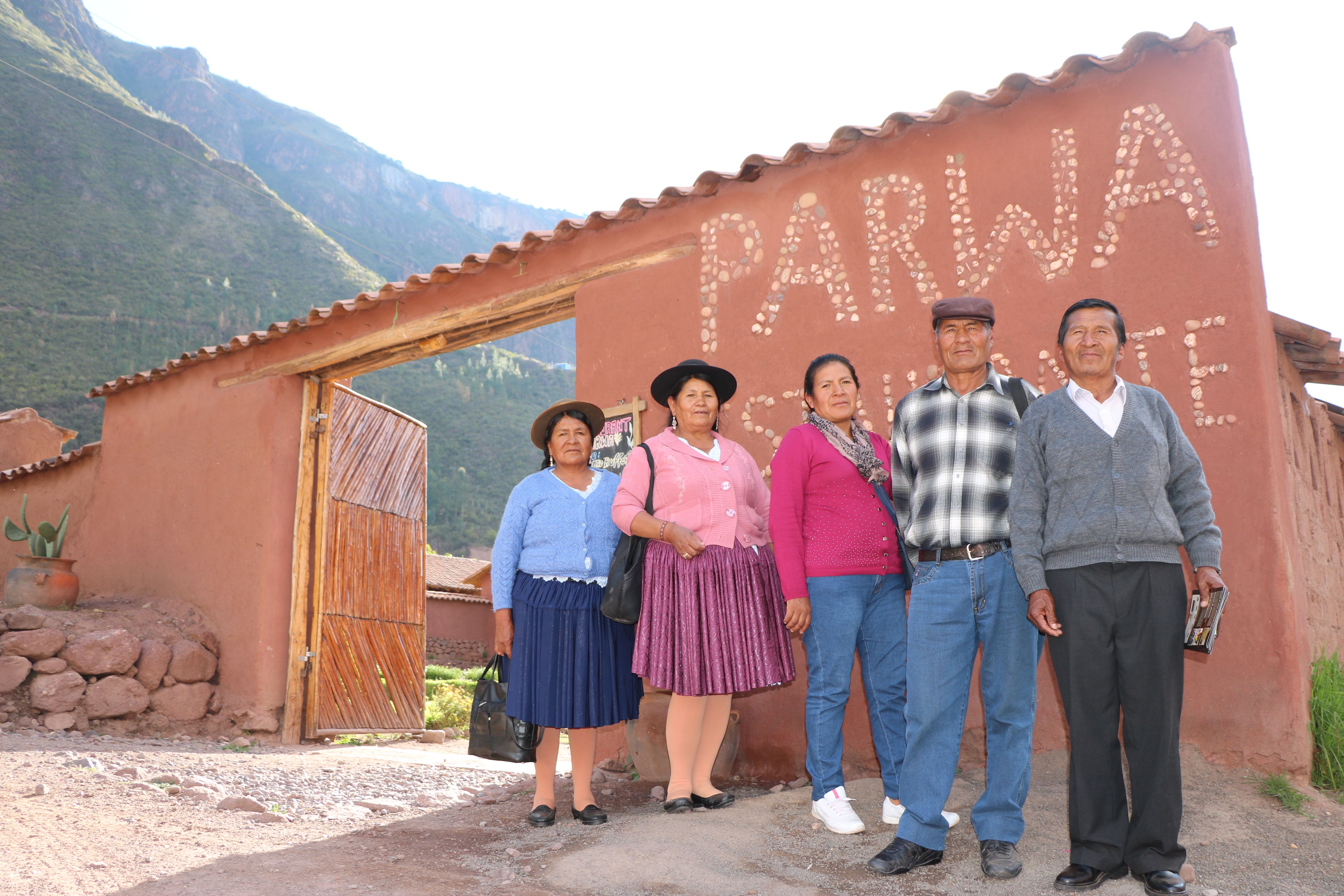An Interview with Domari Society Founder, Amoun
JERUSALEM, ISRAEL- Community centre in Jerusalem supporting marginalized Domari women and children, earning income through a meal and handicraft experience for travellers.
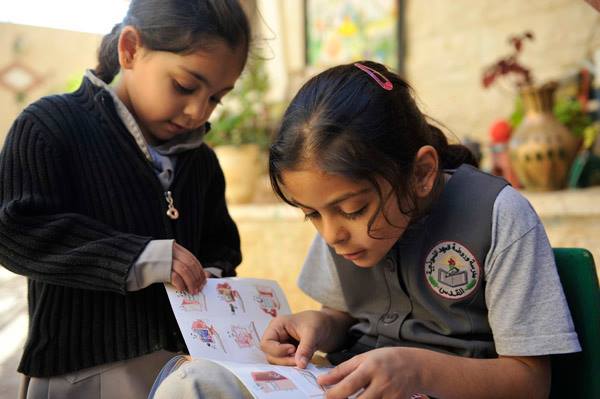
While women represent the majority of workers, they are often in lower-level positions and are earning 14.7% less than their male counterparts. A lack of education or formal training jeopardizes women’s active participation in tourism. At Planeterra we are working to close this gap.
Meet Amoun Sleem, she founded Domari Society at the age of 16 and since then has committed her life to serve her community. For International Women’s Day we at Planeterra wanted to highlight the amazing women we work with all around the world who are continually making an impact.
We had the opportunity to interview Amoun that you can read below.
Why did you start your organization?
The Domari Society of Gypsies in Jerusalem was established in 1999, I opened the doors of my house as a shelter and a center for my community. I wanted the Dom community, especially women and children to find a space of tolerance, acceptance, and most importantly a place where they can develop new skills, get support in continuing their education, and gain empowerment tools for a better life.
The society was a response to the loss of cultural pride, lack of education, unemployment and poverty within the community. Our Dom history begins with us migrating from India to the Middle East. We adopted the local language (Arabic) and religion (Islam) but kept our traditions. The Dom community are seen as “different” by their Arab neighbours, but as Palestinians, they face the same unequal treatment from the Israeli state. Our mission is to improve the circumstances of the Dom community. We focus on educational development, economic empowerment, and cultural preservation.
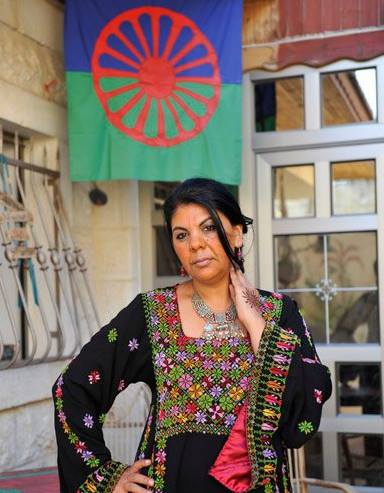
What impacts have you seen in your community?
Our work is focused on educational development, economic empowerment, and cultural preservation. To meet these goals, we create programs especially for women and children. Firstly, we have an after-school tutoring program for Dom children. Our goal is to raise Dom children’s educational level, to encourage parents and children to continue with education, and give Dom children better opportunities and choices of future work.
Before COVID-19 the center had become an integral part of their everyday life. They felt safe and motivated to go to school every day, and their grades were getting better and their involvement with school activities increased. We believe that our tutoring support is helping children to stop dropping-out of school, as they get more confident with their abilities and aspirations for the future. We are happy to say that we have students who are entering high-school now. However, it has been a challenge to keep such progress with continuous lock-downs and limitations. We are focusing on helping Dom students at home to take part in the shift to online-learning; we are contacting donors and applying for grants to acquire tablets or laptops for Dom children. a few of the Dom children are using their parents’ smartphones to access their classes and the remaining have no alternatives for the physical school classrooms.
Secondly, we are dedicated to providing Humanitarian Aid, especially during COVID-19. A lot of Dom parents have lost their jobs and their only source of income. We are focusing on maintaining our community’s will-power and continue to give the children assurance and hope during the pandemic. The Domari Society supports the Dom family with vital and necessary supplies; food packages, blankets, school supplies, and children gifts to uplift their spirits.
Thirdly, we have a tourism program with Planeterra. Our goal is to inform people around the world about Domari history and culture, create work opportunities for Domari women and increase their independence, and receive income outside of grants. The project before COVID-19 was a great opportunity for our community, as they were able to use their skills and communicate with different people from different cultures. We believe that our mission is giving a voice to our community.
Fourthly, we offer a space for the community to meet, exchange and live out their traditions. This is essential for preserving the Domari culture, which is at risk of marginalization. One of our projects is the Domari Language Preservation. We invite elderly members of the community and record Domari language. It provides an opportunity for the children to forge a connection with their cultural, linguistic heritage in hopes that it will not disappear. Before the pandemic, the community center held a variety of activities to keep the Dom traditions alive; traditional Gypsy food dinners, live music and dance. Additionally, the Domari Society has compiled a cookbook of Gypsy recipes and a book about Domari history entitled The Dom of Jerusalem.
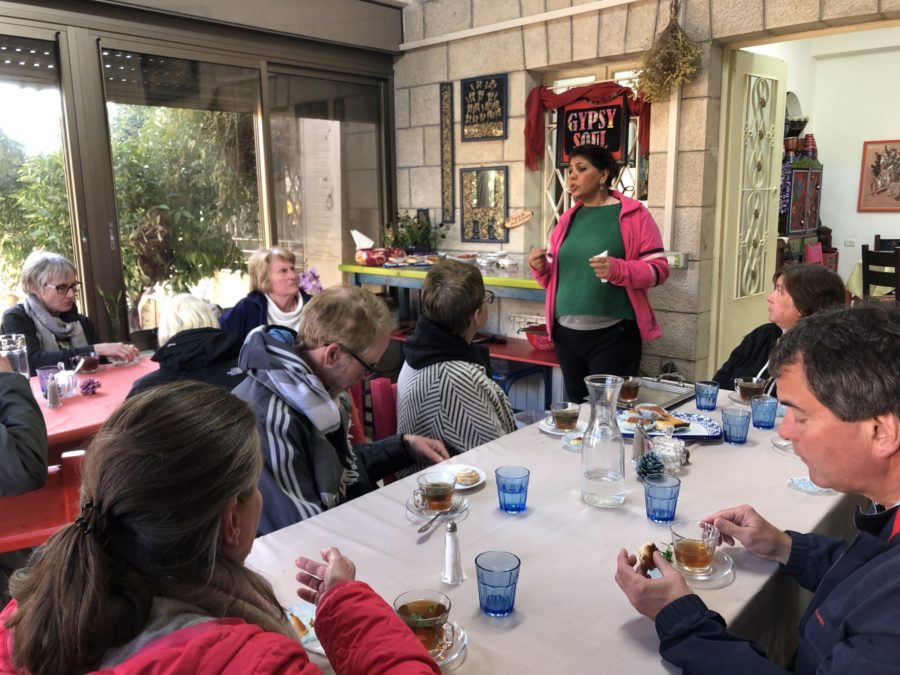
What impacts has your organization had on women in your community, and why is that so important?
Dom women are the pillars of our community, they are the pillars of change and achieving economic empowerment. I believe in order to build a strong independent society that has a clear future, I must provide the Dom women with the tools and skills to function independently in their communities and later transfer these mindsets and work ethics to their children, who are the future.
One of the courses we provide is a small Business Course, in which women can learn skills necessary for starting and running an independent business. The course was geared towards individuals already working in the service industry and includes accounting, operations management, marketing, and technical expertise. We also provide catering and hairdressing courses with practical and theoretical sessions, which include psycho-social workshops, business follow-ups, income statements, and marketing sessions. We aim to increase the possibilities of Dom women finding employment or opening their own businesses, and as a result, improve the status of Dom women within their families and societies.
Dom women are always eager to participate in new learning opportunities that we provide, as they receive official certificates and real skills. Consequently, we recognized that Dom women became more confident, and the Dom community especially men are becoming more open-minded to the women’s various roles and abilities in the society. When our women find employment through the skills developed in courses, both the economy of the community and families as a whole experience positive effects.
We also offer the center as space for Domari women to showcase their handicraft work, which is their only source of income, our goal as well is to celebrate the Dom people culture and cultivate cultural pride and self-confidence.
What actions do you take to ensure women in your workplace have equal opportunities?
At the Domari center, I make sure to give every Dom woman the chance and opportunities to develop new skills, gain experience, and find her path in life. I believe that it’s important to hear every woman’s struggle and find a program that suits her best. I always strive to be a mentor and provide guidance whether for work or for personal matters. Of course, the work environment revolves around building confidence between employees and volunteers, and where trust and cooperation are essential for progression. Therefore, we address our employees’ personal life pressures and duties, especially because I work with women. Most Dom women feel that they can’t reach their goals and mainly in their careers, because they lack childcare support, but at my center children are welcomed and we provide games and a space for them.
What are your dreams for your organization?
I have many dreams for my organization, one is to make the Domari Society Center a model for all gypsies around the world; to become an international focal point for connecting all gypsies together, and I aspire to make it a model for all gypsies -especially in the Middle-East- where from it they can derive pride in our culture and ethnic roots. Such a dream is a journey where we have many bus-stops; end discrimination, and obtain economic, legal, and social equality. I strive to reach leaders who will advocate for our rights, promote justice, and give voice to the voiceless.
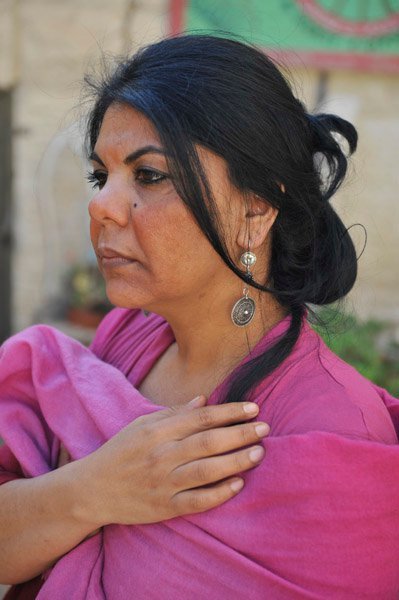
You can learn more about our work the Domari Society here.


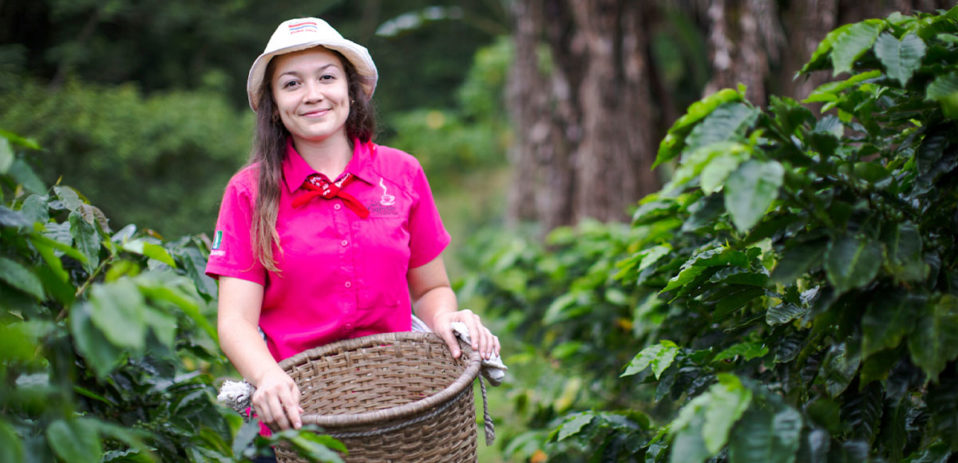
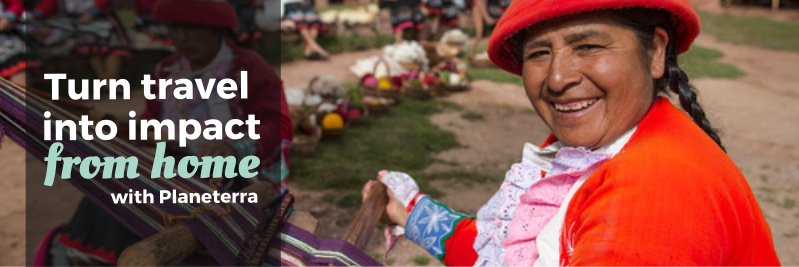

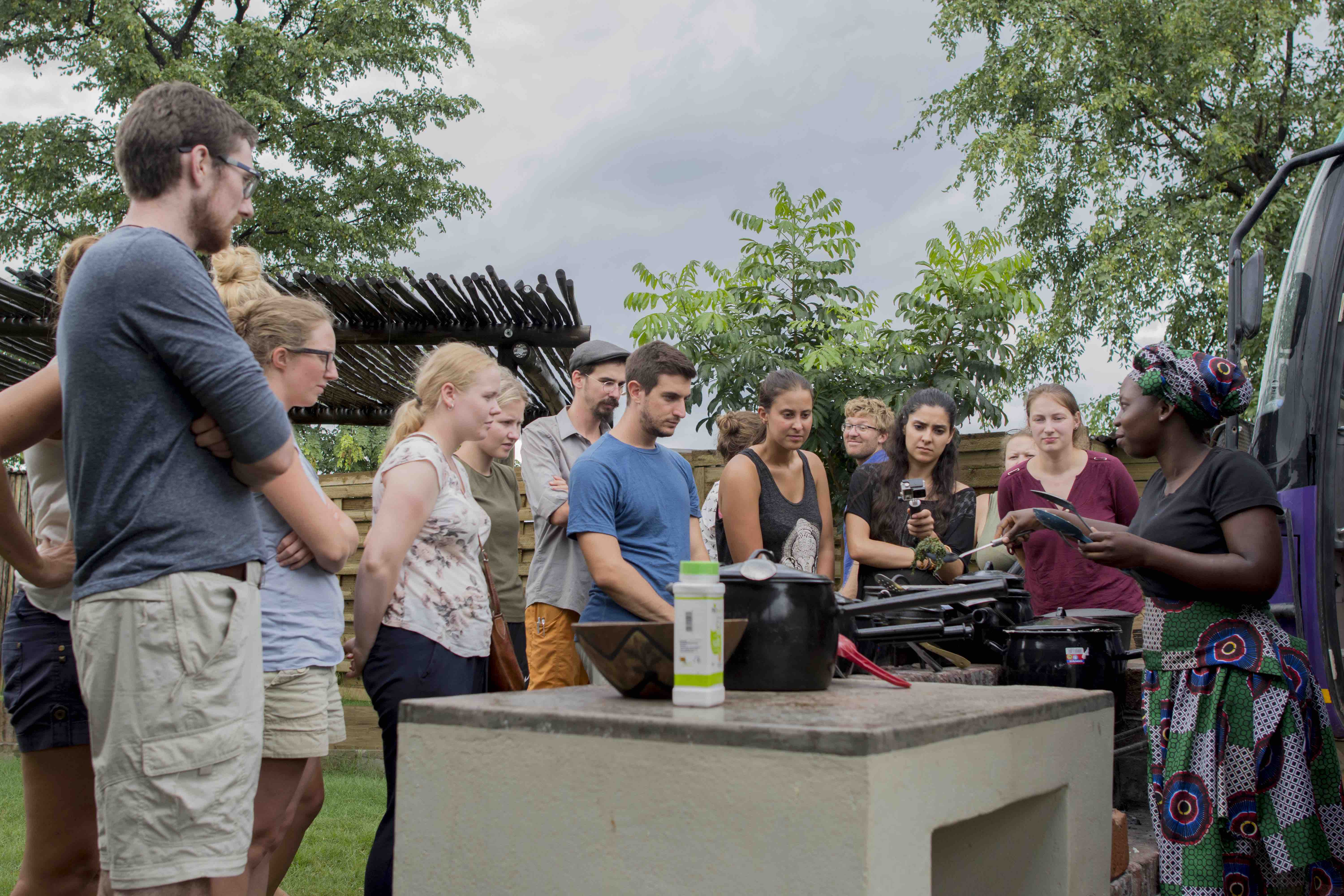
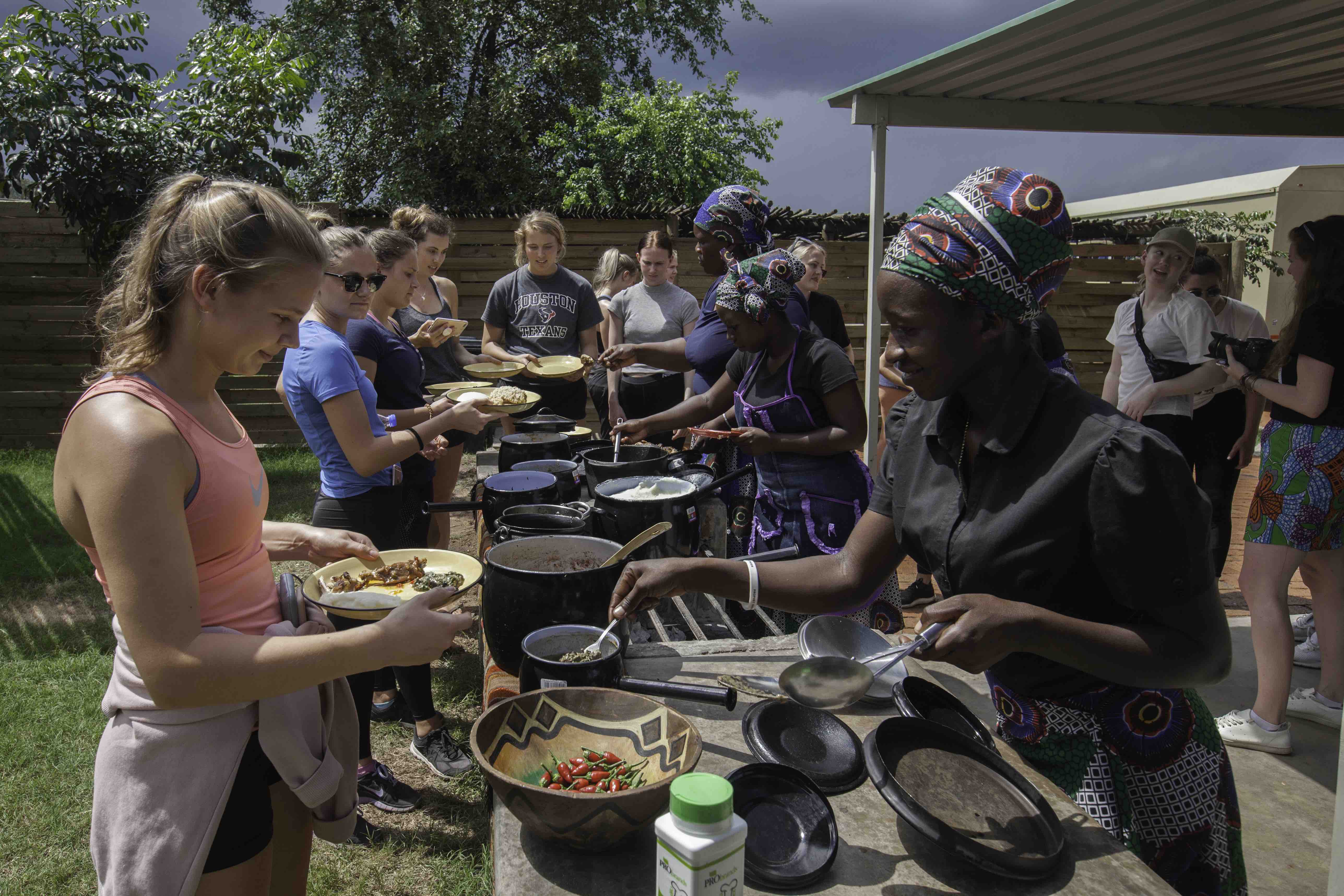
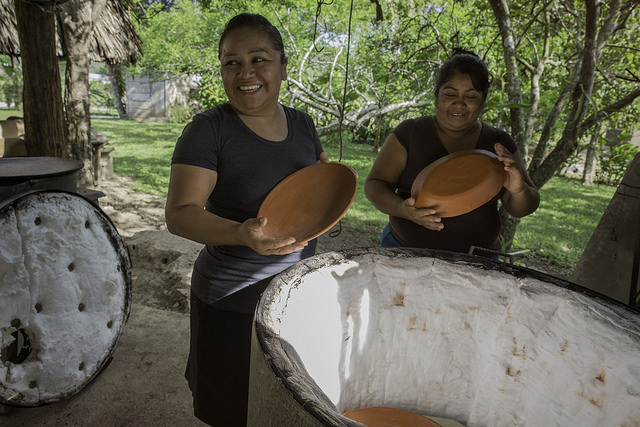
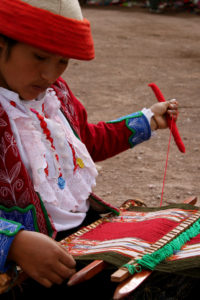 Ccaccaccollo Women’s Weaving Co-op
Ccaccaccollo Women’s Weaving Co-op Moshi Mamas
Moshi Mamas


